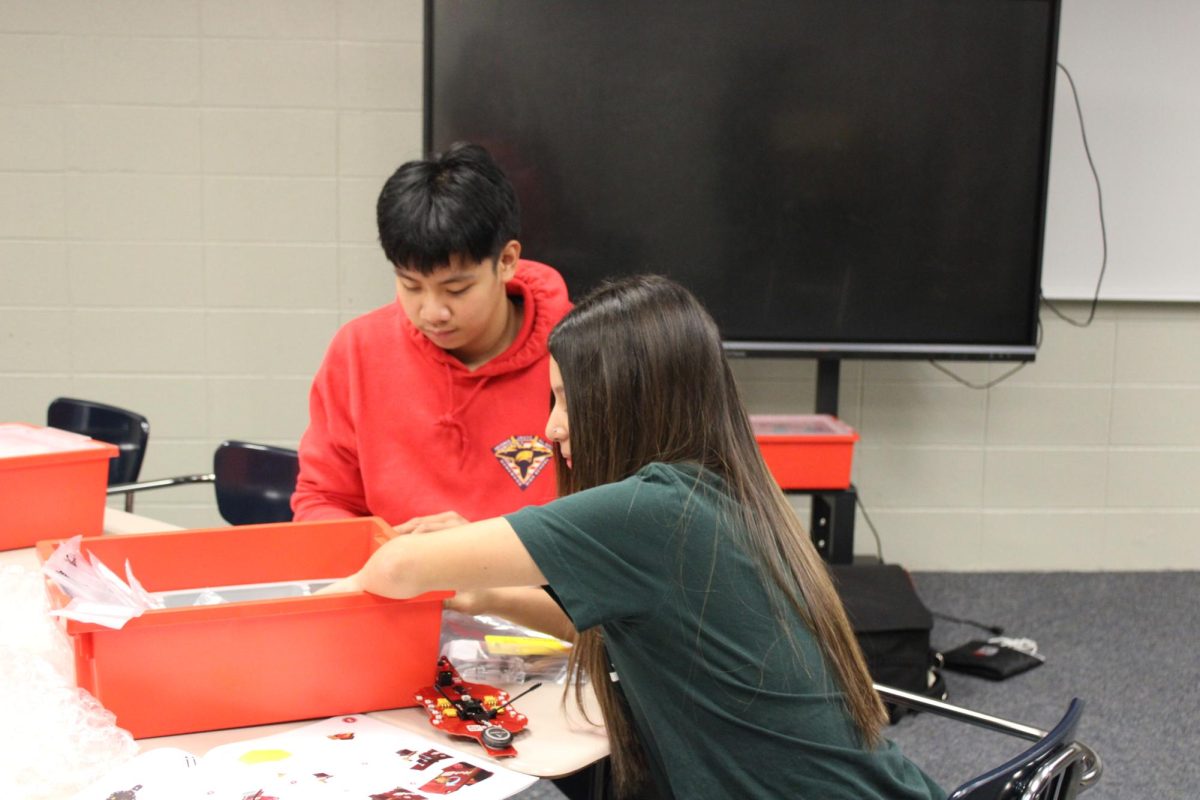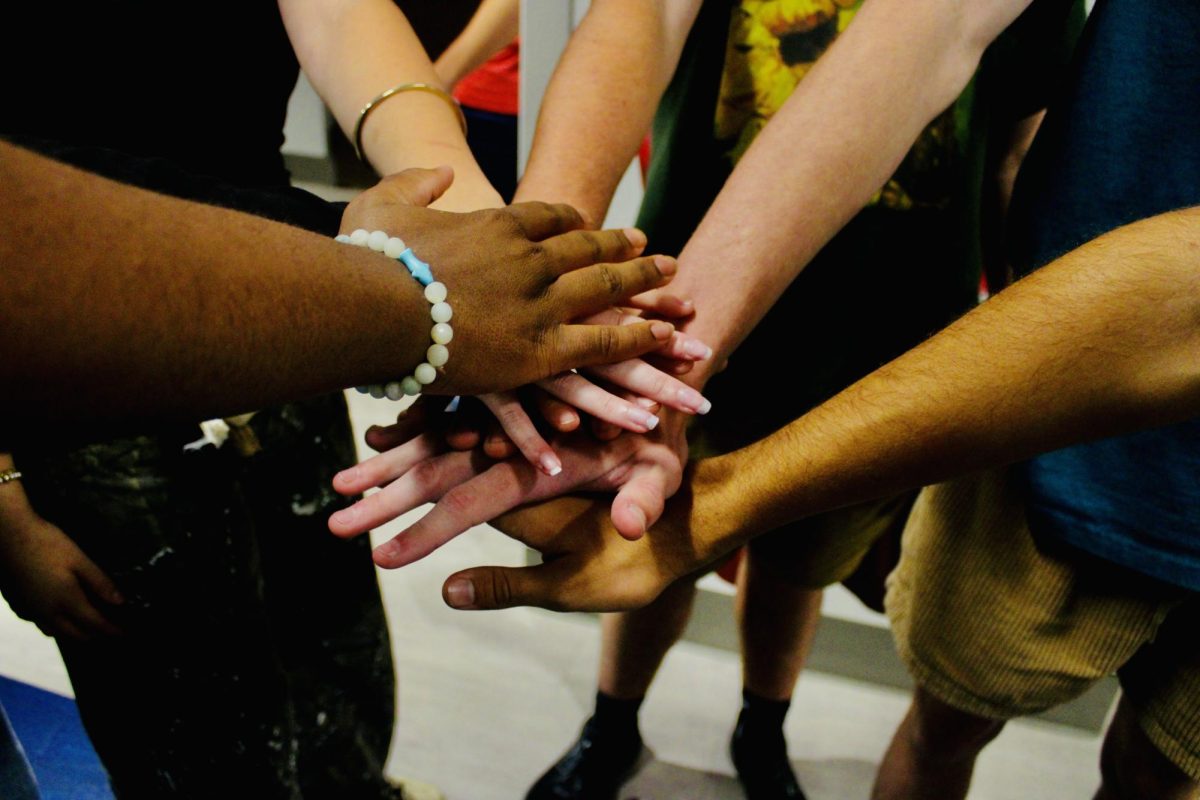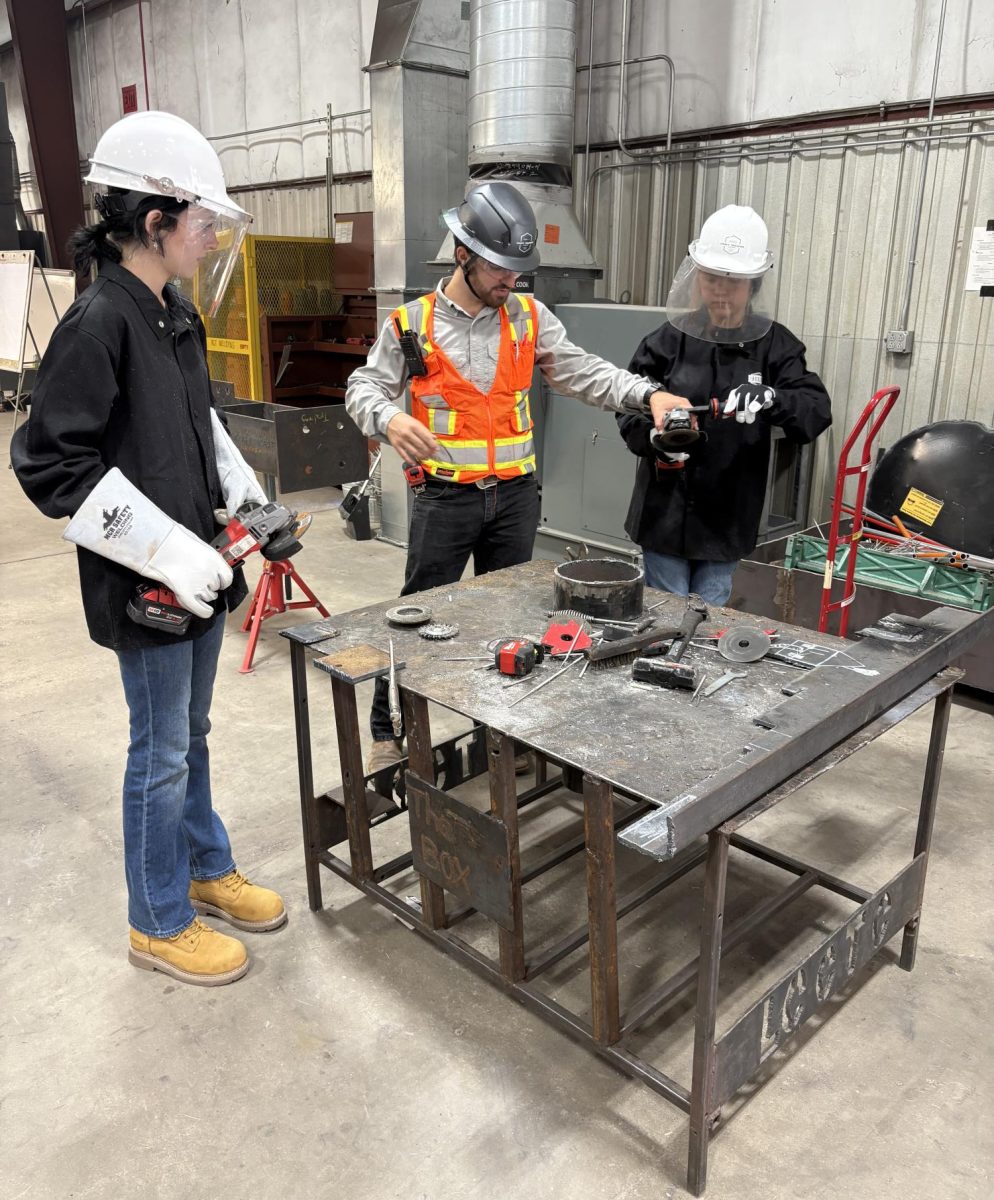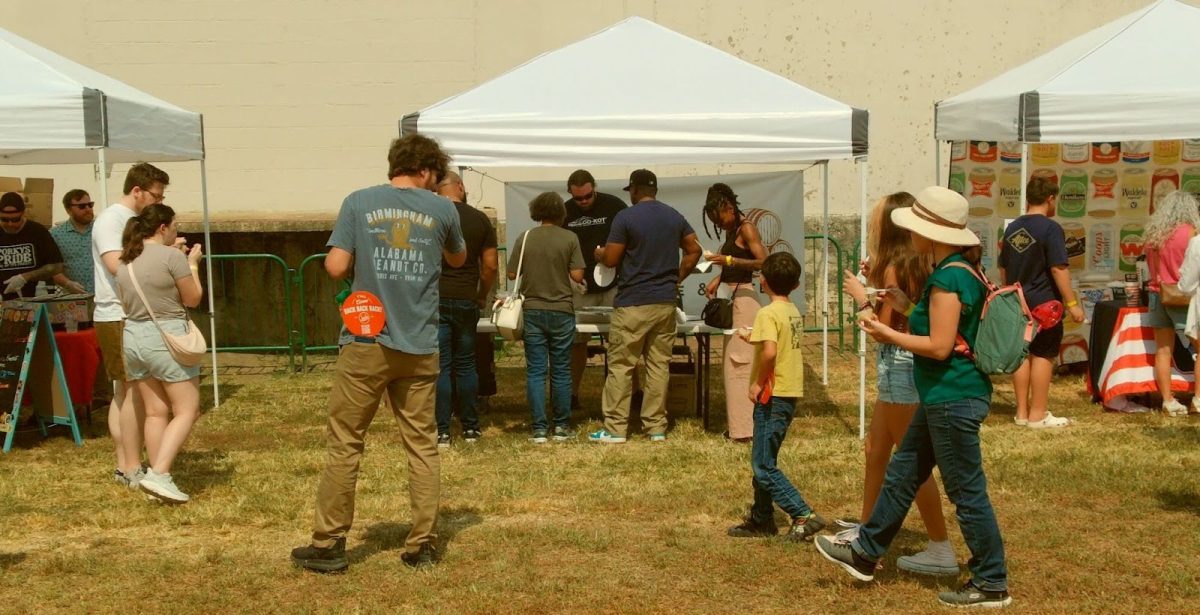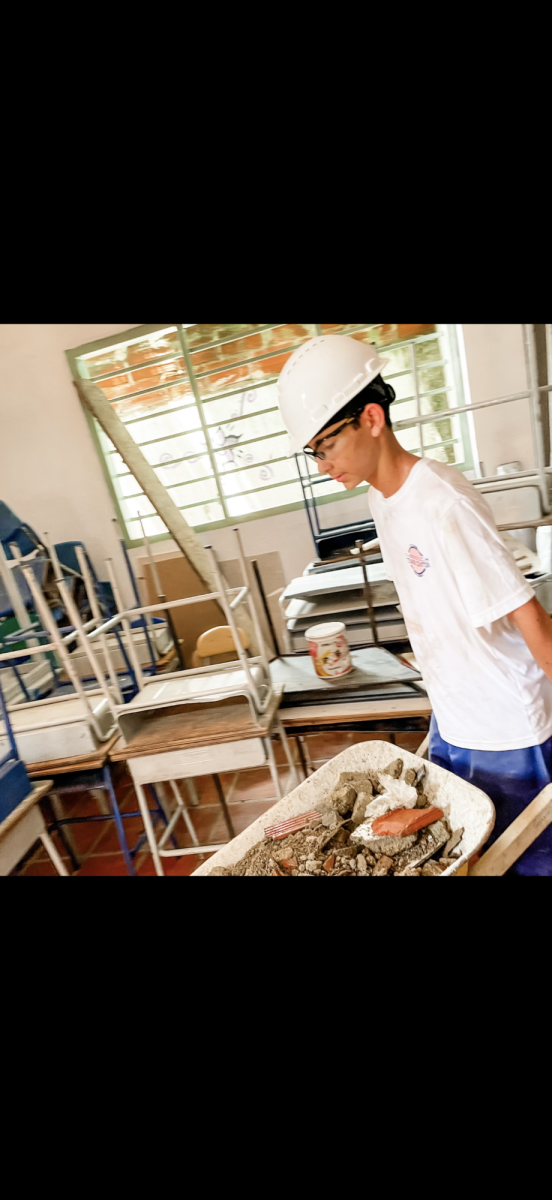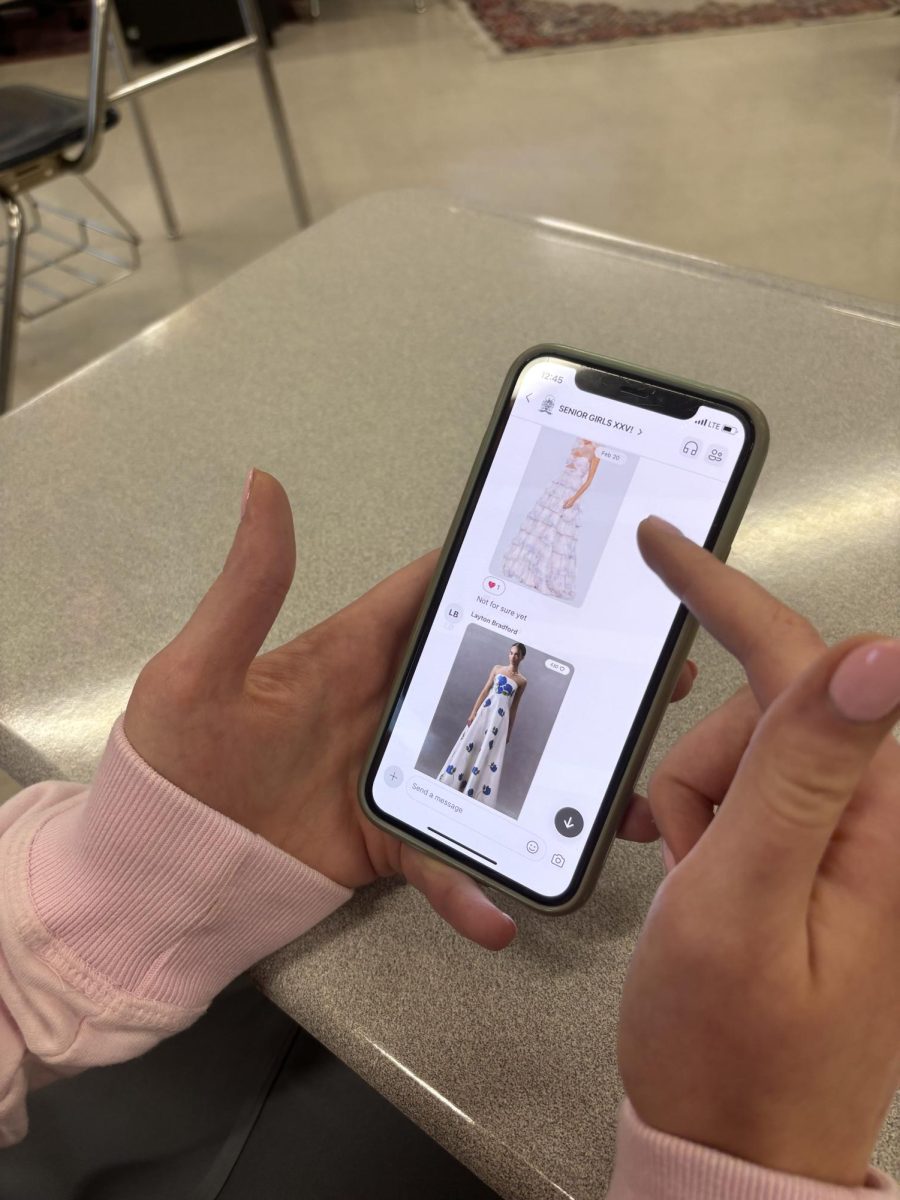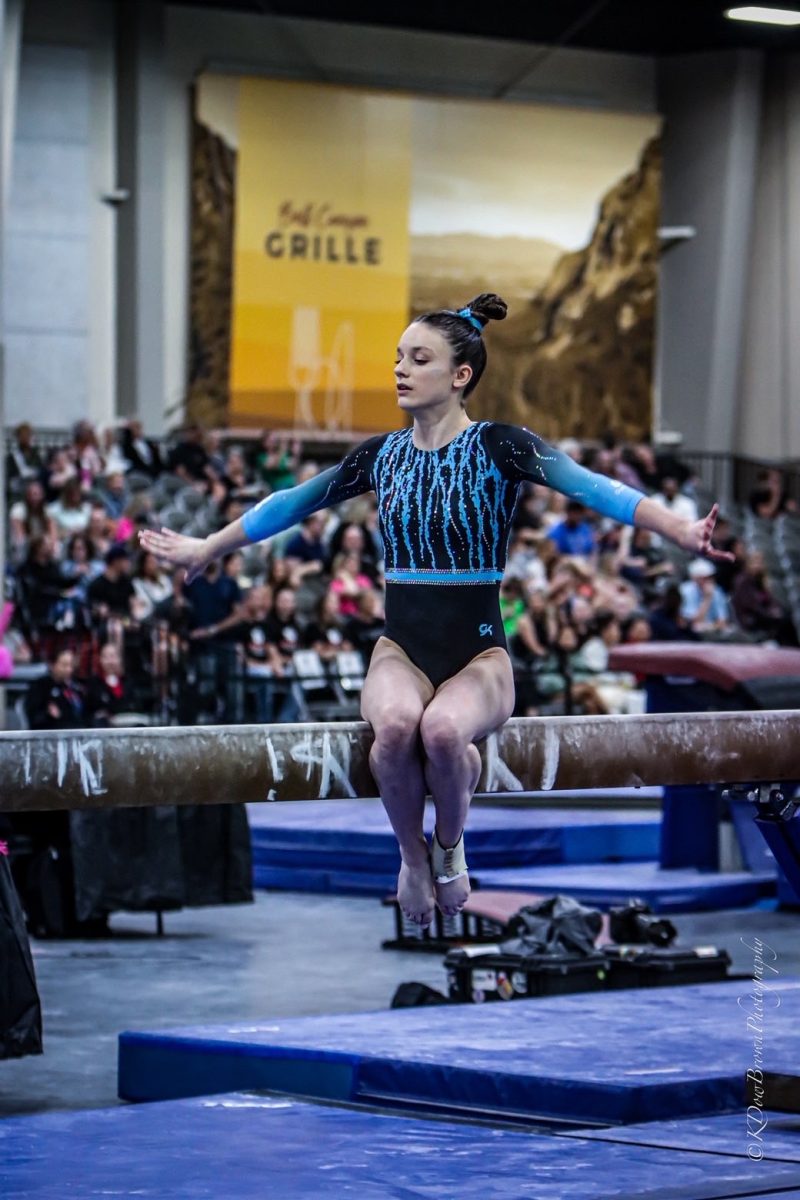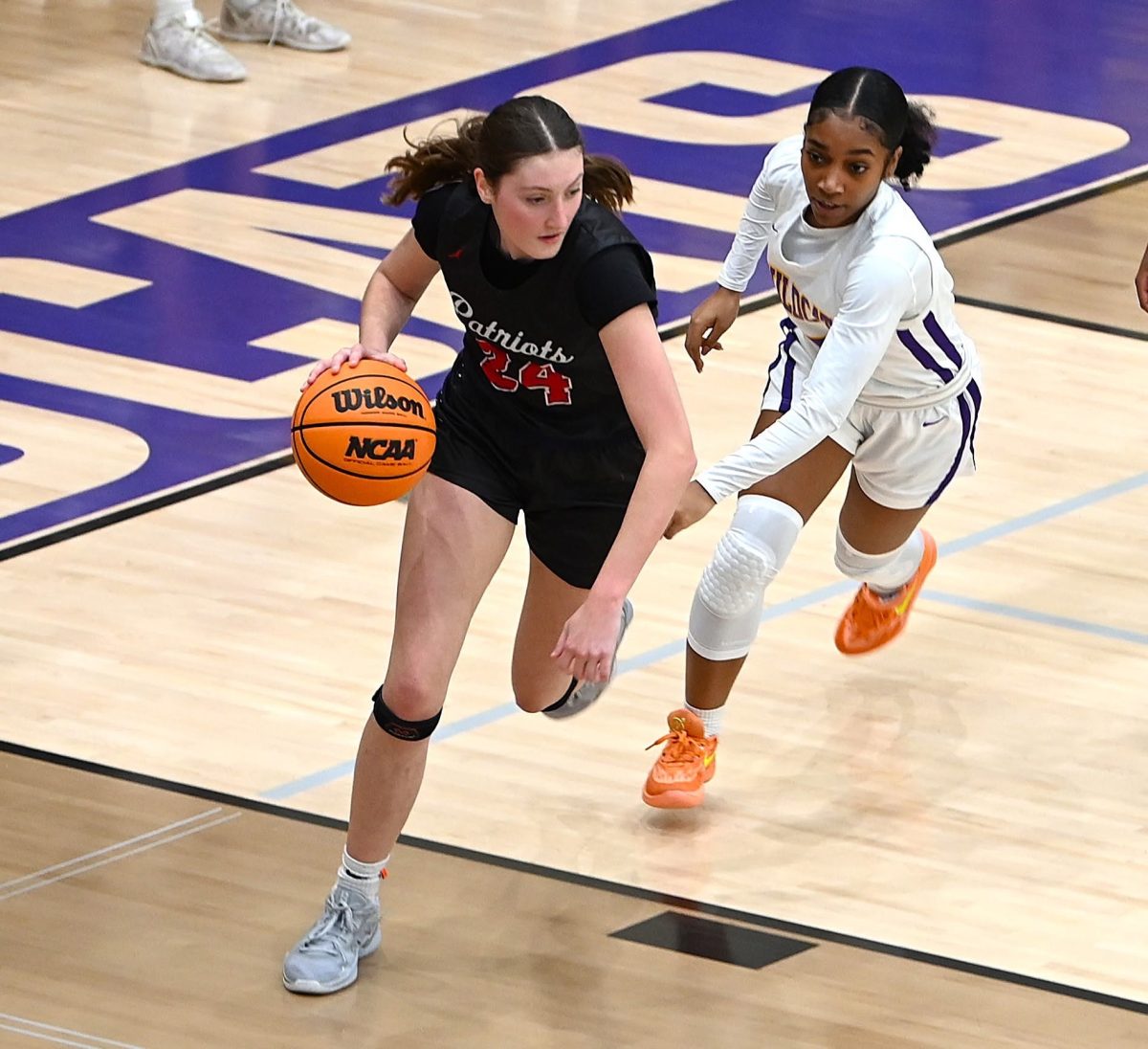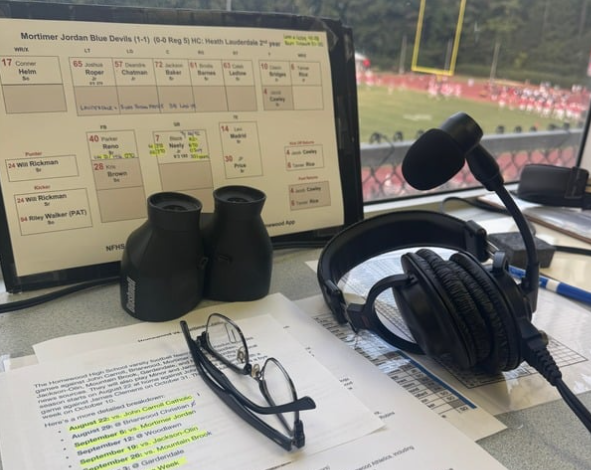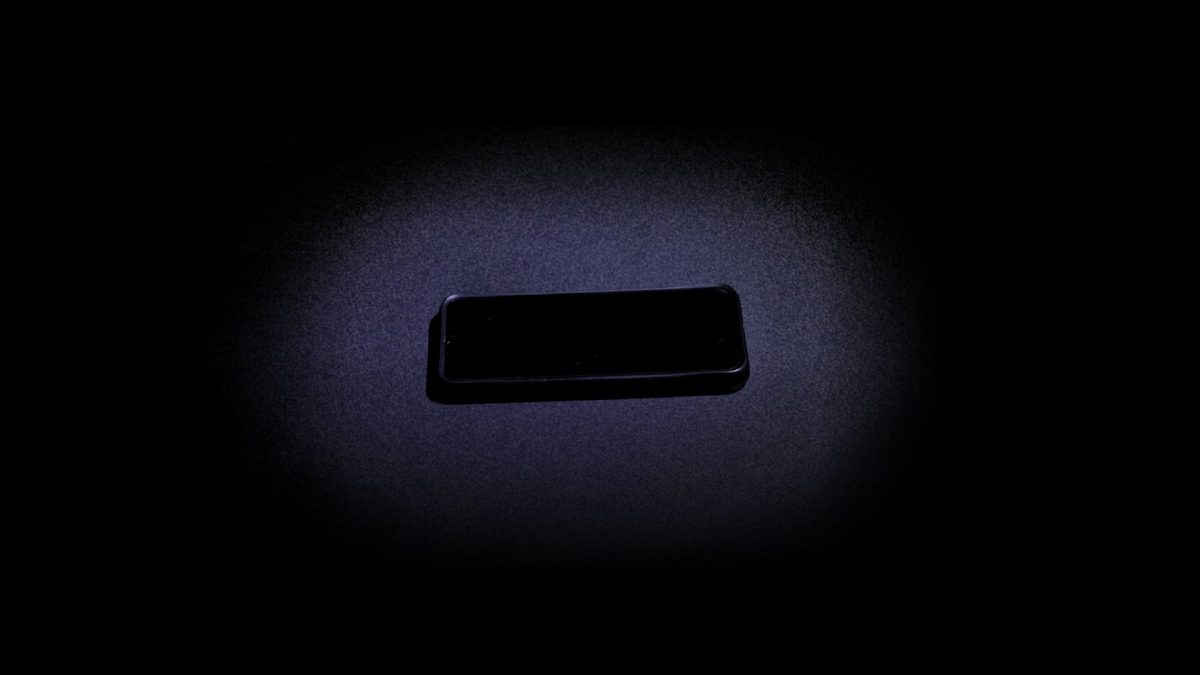Most Homewood High students know about Homewood’s show choirs: the poofs, the day-long (and night-long) competitions, the “sweeps” bringing home trophies for each group from their winning performances. But most probably don’t know who is behind their jaw-dropping, nationally awarded performances, and who gets the sets up and running week after week.
From setting up lights and TVs to sewing dresses, Homewood’s show choir stage crew is responsible for the production of performances and ensuring competitions run smoothly.
Stage crew consists of 24 students who get together during 3rd period to plan, construct and mend equipment and costumes for all three choir groups. If there is a rip in a dress, they are there to sew it up. If a TV is broken from the previous weekend’s performance, they are hands-on during the week to fix it for the next.
Starting in 2023 as a mixture of current performers and other students who wanted to help out, show choir director Cody McDonald commented on stage crew’s evolution over the last three years.
“When it first started, it was mostly setting up risers and getting costumes together,” he said. “Now, we have units who sew all of our costumes and set up entire stages with TV screens, sound systems and light towers. From a technological standpoint, it has evolved a lot over the last two years.”
McDonald walked through a typical week for the class period and what they do on a day-to-day basis:
On Monday, they reorganize equipment from the previous weekend’s show such as light towers and costumes and determine what costumes need to be washed for the next week. They also focus on wrapping up any loose ends from the weekend.
Tuesday, they start putting the tech equipment back together to test throughout the week at rehearsals. Costume repair issues also start and they see what needs to be specifically fixed for different groups and costumes, which show choir director Byron Mosquera manages.
Wednesday is a continuation of work from Tuesday by fixing technology and costumes as needed.
Thursday entails seting up equipment and helping to run rehearsals on stage. They also begin taking everything back apart and packing up for the weekend’s performances.
Fridays are loading the trucks with all equipment and costumes and get prepared for the upcoming weekend’s performances.
At the end of the week, depending on where the competition is held, stage crew will travel to the host show to transport the props for the show on Friday nights to unload all the equipment and costumes needed for the next day. This process takes about four hours. They are then there all day on Saturdays, the competition days, setting up, helping out and being there for whatever is needed.
Sophomore Luke Richards helps with the technology side of production and enjoys his behind-the-scenes work.
“We do all help with everything, but during competitions, I help get everything set up on stage and then go up to the booth to help with the lights for shows,” he said. “I move TV and light towers on the stage and get them plugged up, I make sure the dongles are set up for the lights in the booth, I que overhead lights during the show, and then help clean up everything off the stage after a performance.”
Richards commented that his favorite part of stage crew is “being around other people who also enjoy the technology side of production and getting to have fun by doing what I love with others who also love it.”
Everyone on stage crew has a basic understanding of what is happening at all given points needed for the success of a performance, but most have their own specific roles crucial to the production when on stage.
“One kid is assigned a light tower, one is assigned a TV tower, this kid might get a speaker connected to a certain place,” McDonald said. “Others are helping with costume changes in the back. The Network boys do help move equipment on and off stage, and help with Continuum and Nexus, but everyone has their specific job during a show.”
All in all, show choir would not be possible without the hard work and dedication of stage crew who devote their time and effort every day to help productions run smoothly. The next time you watch a performance, take into consideration that all of what you are watching is credited to the commitment of this group of 24 students.

